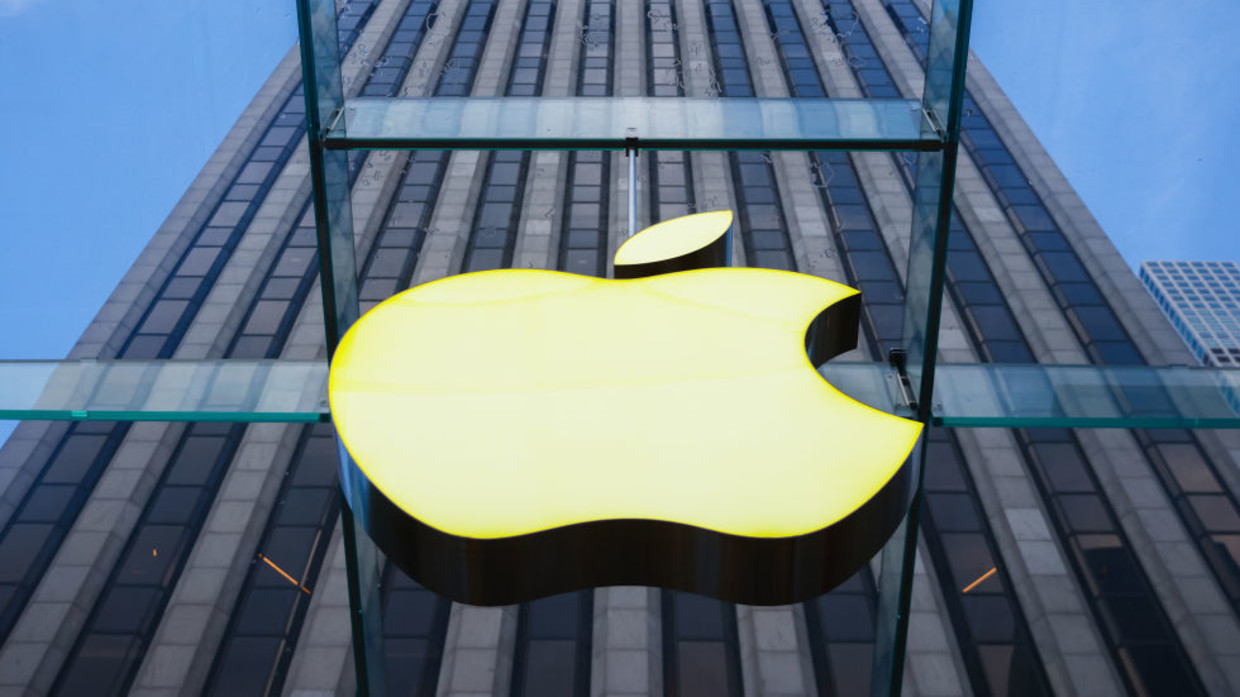Amidst recent market fluctuations, notably influenced by factors including trade policy and a challenging market phase, the group of leading technology companies known as the “Magnificent Seven” has seen shifts in their relative standing. While all members of this prominent group are currently trading below their 50-day moving averages, changes in market capitalization have led to a rearrangement at the very top and bottom of their Nasdaq weighting hierarchy.

Apple Reclaims Top Nasdaq Weighting
Apple (AAPL) has once again become the stock with the largest individual weighting on the Nasdaq index. The iPhone manufacturer now accounts for 9.3% of the Nasdaq’s market capitalization. This move sees Apple overtake Microsoft (MSFT), which briefly held the top position but has now settled into second place with an 8.5% weighting in the tech-heavy index.
Nvidia (NVDA) maintains its position as the third-largest component, representing 7.5% of the Nasdaq. Further down the list, Alphabet (GOOGL) and Amazon.com (AMZN) hold nearly identical weightings at 5.7% each, while Meta Platforms (META) currently represents 3.9%.
Tesla’s Standing Changes
Following a significant price decline from its peak in December, Tesla (TSLA) has experienced a notable shift in its relative market capitalization standing compared to other large companies. Tesla’s weighting on the Nasdaq currently sits at 2.3%, which is now surpassed by Broadcom (AVGO), a company not typically included in the “Magnificent Seven,” which holds a 2.5% weighting. Investors are particularly focused on Tesla this week as the electric vehicle company is scheduled to release its earnings report after the market close today.
Understanding the ‘Magnificent Seven’
The term “Magnificent Seven” has become the current label for a specific group of dominant technology and growth stocks, succeeding earlier popular acronyms like FANG or FAANG. This group comprises Alphabet (GOOGL), Apple (AAPL), Amazon (AMZN), Meta Platforms (META), Microsoft (MSFT), Nvidia (NVDA), and Tesla (TSLA).
Influence on the Nasdaq Index
Unlike the price-weighted Dow Jones Industrial Average, both the Nasdaq Composite and Nasdaq 100 indexes are weighted by market capitalization. This means that the performance of companies with larger market caps has a proportionally greater impact on the index’s overall movement. As a result, the combined market value of the Magnificent Seven stocks exerts a significant and often disproportionate influence on the performance of the Nasdaq indexes.
While the Nasdaq conducted a rebalancing in July 2024 aimed at reducing the individual weightings of these stocks, the combined total weighting remained substantial, shifting only from over 50% to nearly 50%, indicating that the Nasdaq 100 index remains heavily concentrated in these few large-cap growth companies.
Current Market Strategy Outlook
Given the current market conditions and volatility affecting even these leading stocks, investment methodologies like The IBD Methodology emphasize sound risk management. The recommended market exposure level for investors following this approach is currently set at its lowest possible tier, between 0% and 20% of capital. This low exposure level is a key component designed to help investors protect capital during uncertain market phases.







